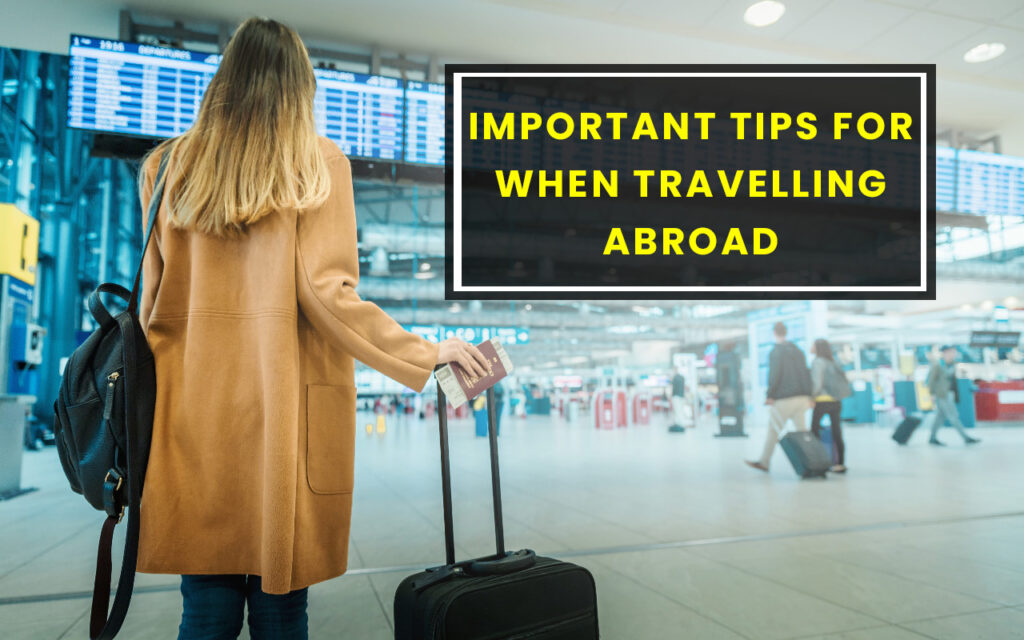Managing foreign currency during your travels
Managing foreign currency during your travels is an essential aspect that every traveler should consider. Whether you are exploring the bustling streets of Delhi or embarking on an international adventure, understanding how to handle money exchange and foreign currency can greatly enhance your travel experience. In this comprehensive guide, we will provide you with valuable tips and strategies to effectively manage your foreign currency during your travels. From finding the best money exchange services in Delhi to carrying foreign currency in a secure manner, we have got you covered.
Delhi, the capital city of India, is renowned for its vibrant culture, historical landmarks, and bustling markets. If you are visiting Delhi and need to exchange your currency, it is crucial to research and find reliable money exchange services. Here are some tips to help you find the best money changers in Delhi:
- Read online reviews and ratings of different money exchange services in Delhi.
- Ask for recommendations from fellow travelers who have visited Delhi.
- Compare exchange rates offered by various money changers to ensure you get the best value for your money.
- Check if the money exchange service is authorized by the Reserve Bank of India (RBI) to ensure credibility and security.
- Consider the convenience and accessibility of the money exchange service’s location.
By conducting thorough research and choosing a reputable money exchange service in Delhi, you can ensure a smooth and secure currency exchange process.

2. Understanding Exchange Rates and Conversion Fees
Exchange rates and conversion fees can significantly impact the amount of foreign currency you receive during a transaction. It is important to understand these factors to effectively manage your money exchange. Here are some key points to consider:
Exchange Rates:
Exchange rates determine the value of one currency relative to another. They can fluctuate daily based on various factors, such as political stability, economic conditions, and market demand. Stay updated with the latest exchange rates by using reliable currency conversion websites or mobile applications. This knowledge will help you identify favorable exchange rates and optimize your currency exchange.
Conversion Fees:
Money exchange services may charge conversion fees or service fees for their currency exchange services. These fees can vary among different providers. It is essential to inquire about any additional charges before initiating a currency exchange. Compare the conversion fees offered by different money changers and choose the one that offers competitive rates with minimal fees.
3. Carrying Foreign Currency in a Safe and Secure Manner
When traveling to a foreign country, it is crucial to ensure the safety and security of the foreign currency you carry. Here are some tips to help you carry your foreign currency in a safe and secure manner:
- Divide your money into multiple locations: Instead of carrying all your cash in one place, distribute it among different compartments, such as your wallet, money belt, and backpack. This way, even if you lose a portion of your money, you will still have backup funds.
- Use a travel card or prepaid forex card: Travel cards or prepaid forex cards are a convenient and secure alternative to carrying cash. These cards can be loaded with the desired amount of foreign currency and used for transactions at ATMs, shops, and restaurants. They also offer the benefit of locking in exchange rates in advance.
- Maintain a copy of important documents: Take photocopies or digital scans of your passport, visa, and other identification documents. This will be helpful in case your originals get lost or stolen. Keep these copies separately from your physical documents.
- Be cautious of public Wi-Fi networks: Avoid accessing your online banking or making financial transactions while connected to public Wi-Fi networks. Use a secure and private internet connection, such as your mobile data or a trusted VPN, to protect your financial information.
- Notify your bank about your travel plans: Inform your bank about your travel itinerary and the countries you will be visiting. This will help prevent any unexpected card blocks or flagged transactions due to suspicious activity.
By following these tips, you can minimize the risk of losing your foreign currency and ensure a stress-free travel experience.
4. Utilizing Local Currency Wisely
Once you have exchanged your currency and obtained the local currency of your travel destination, it is important to utilize it wisely. Here are some tips on how to make the most out of your local currency:
- Request smaller denominations: When exchanging currency, ask for smaller denominations, especially if you plan to use cash for smaller transactions. This will make it easier to handle and minimize the need for carrying large amounts of cash.
- Use local ATMs: Utilize ATMs in the foreign country to withdraw cash in the local currency. Check for any associated fees and ensure the ATM is located in a secure and well-lit area.
- Be mindful of card payments: Some establishments may offer the option to pay with a card. While convenient, be aware of any potential transaction fees or unfavorable exchange rates that may apply.
- Budget your expenses: Plan a daily or weekly budget to keep track of your expenses and avoid overspending. Prioritize essential purchases and allocate funds accordingly.
- Exchange back unused local currency: If you have excess local currency at the end of your trip, consider exchanging it back to your home currency before leaving the foreign country. This will help you avoid losing money due to exchange rate fluctuations.
By utilizing the local currency wisely, you can make your funds last longer and have a more cost-effective travel experience.
Foreign Exchange Strategies
In addition to money management tips, it is also beneficial to explore different foreign exchange strategies that can maximize the value of your currency exchange. Here are some strategies to consider:
1. Dollar Cost Averaging
Dollar cost averaging is a strategy where you regularly invest a fixed amount of money into foreign currency at predetermined intervals. By investing at regular intervals, you can average out the impact of market fluctuations and potentially benefit from lower average exchange rates over time.
For example, instead of exchanging a large sum of money at once, you can exchange smaller amounts at regular intervals, such as every month or quarter. This strategy helps reduce the risk of making a large exchange when the exchange rates are unfavorable.
2. Limit and Stop-Loss Orders
Limit and stop-loss orders are advanced foreign exchange strategies that allow you to set predetermined exchange rate levels for your currency exchange. These strategies are often utilized by experienced traders to automate their currency exchange transactions.
Limit Orders:
A limit order allows you to set an exchange rate at which your foreign currency will be automatically exchanged. If the market reaches your desired exchange rate, the transaction will be executed. This strategy helps you secure a favorable exchange rate and eliminates the need for constant monitoring of market fluctuations.
Stop-Loss Orders:
Alternatively, a stop-loss order allows you to set a minimum exchange rate at which your currency will be automatically exchanged. If the market reaches the specified rate, the transaction will be executed, preventing further losses if the exchange rate continues to decline. This strategy can help protect your funds from significant devaluation.
3. Hedging
Hedging is a risk management strategy that involves taking positions to offset potential losses from currency exchange rate fluctuations. It is commonly used by businesses and investors to protect their assets from adverse market movements.
While individual travelers may not typically engage in complex hedging strategies, it is still beneficial to understand the concept and consider basic hedging techniques. These techniques may involve diversifying your currency holdings or utilizing financial instruments, such as futures contracts or options, to mitigate potential currency risks.
Seek professional advice or consult with a financial advisor if you are considering implementing hedging strategies for your foreign currency management.
In conclusion, effectively managing foreign currency during your travels is essential to ensure a smooth and hassle-free experience. By researching the best money exchange services, understanding exchange rates and conversion fees, and adopting safe practices for carrying foreign currency, you can optimize your money management. Additionally, exploring different foreign exchange strategies can provide opportunities to maximize the value of your currency exchange. With these comprehensive tips and strategies, you can confidently navigate the world of foreign currency during your travel adventures.




Recent Comments